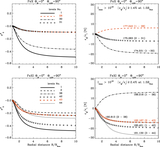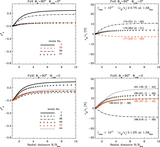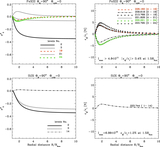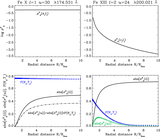Image Details
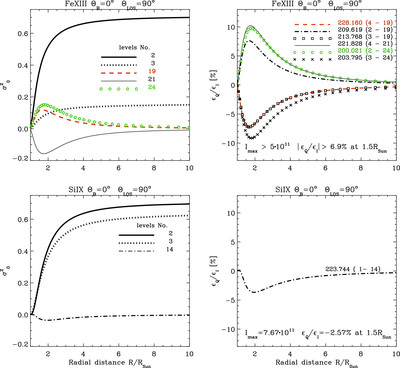
Caption: Figure 3.
The fractional alignment ﹩{\sigma }_{0}^{2}(\alpha J)﹩ of the lower and highly excited levels (left panels) and the ratio of the Stokes Q and I emission coefficients εQ(ν, Θ)/εI(ν, Θ) (right panels) for selected EUV lines of the Fe XIII and Si IX ions as a function of the radial distance R/RSun in the coronal model of Figure 1 of this paper. The top and bottom panels show the results for the Fe XIII and Si IX ions, respectively. The level numbers, wavelengths, and transitions (in brackets) are indicated in the corresponding panels. Geometrical configuration (ΘLOS is the angle between the solar radius vector through the observed point and the LOS): off-limb observations (ΘLOS = 90°) of a radial magnetic field (θB = 0°). For all Fe XIII lines shown, the intensity ﹩{I}_{{\rm{\max }}}﹩ at R/RSun = 1.0 (in units of 1011 photons cm−2 s−1 sr−1) and the absolute ratio ∣εQ/εI∣ at a radial distance of R/RSun = 1.5 are equal to or greater than the values indicated at the bottom of the upper-right panel. The intensity ﹩{I}_{{\rm{\max }}}﹩ and the ratio εQ/εI at R/RSun = 1.5 for the Si IX 223.774 Å line are indicated in the bottom section of the lower-right panel. The positive Stokes-Q direction is the perpendicular to the magnetic field.
Copyright and Terms & Conditions
© 2025. The Author(s). Published by the American Astronomical Society.



